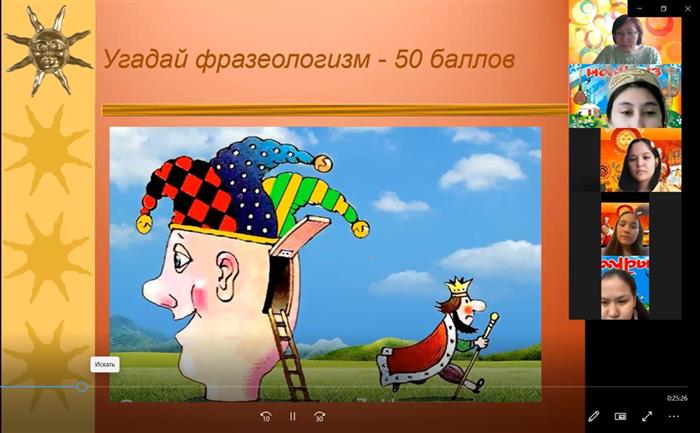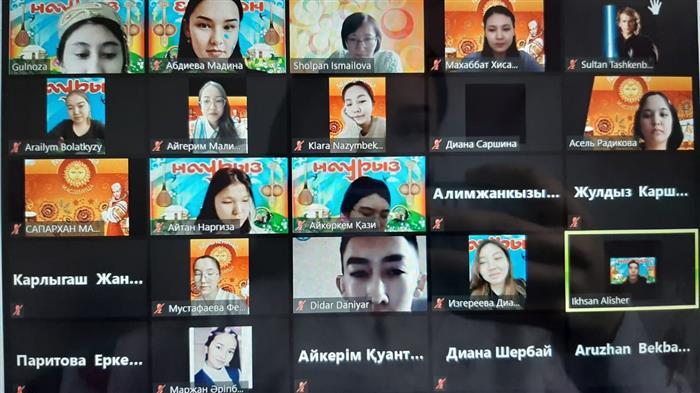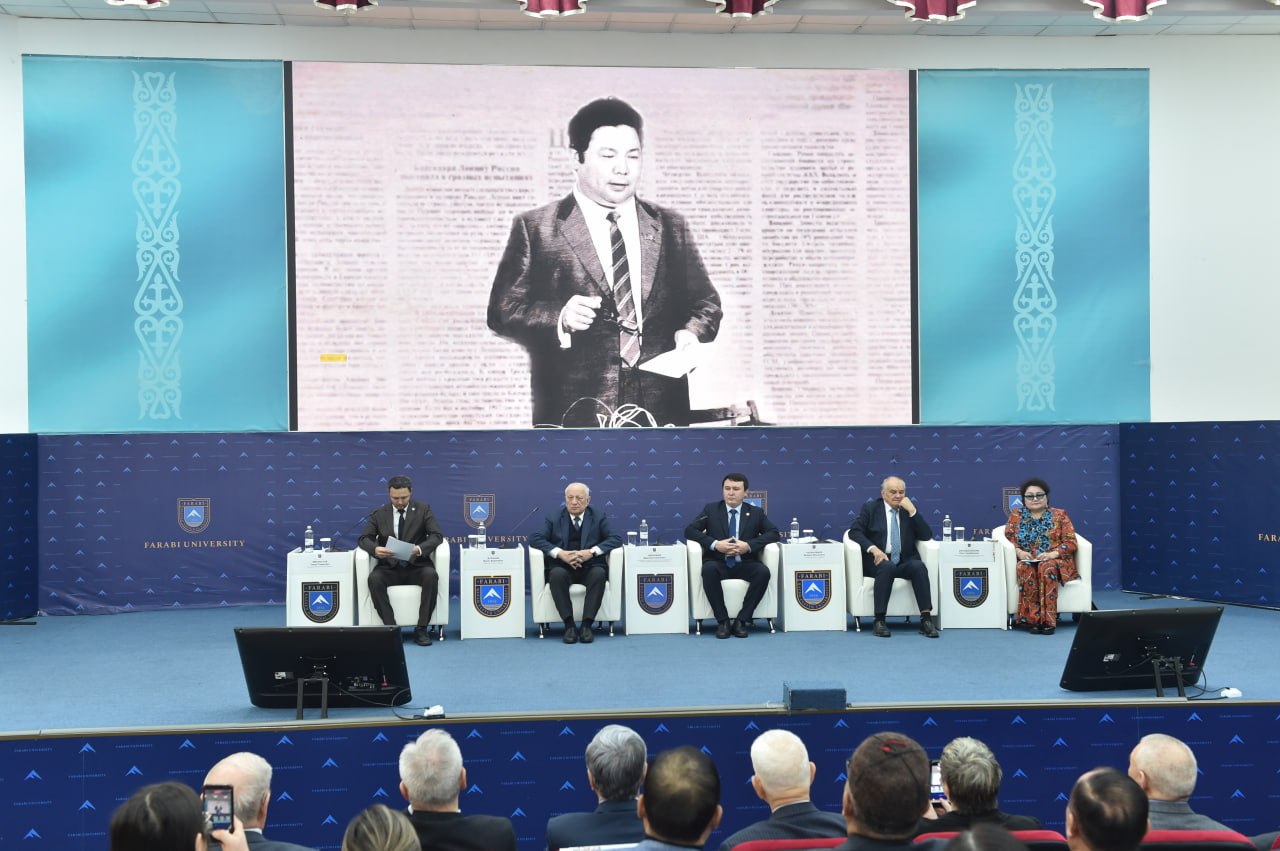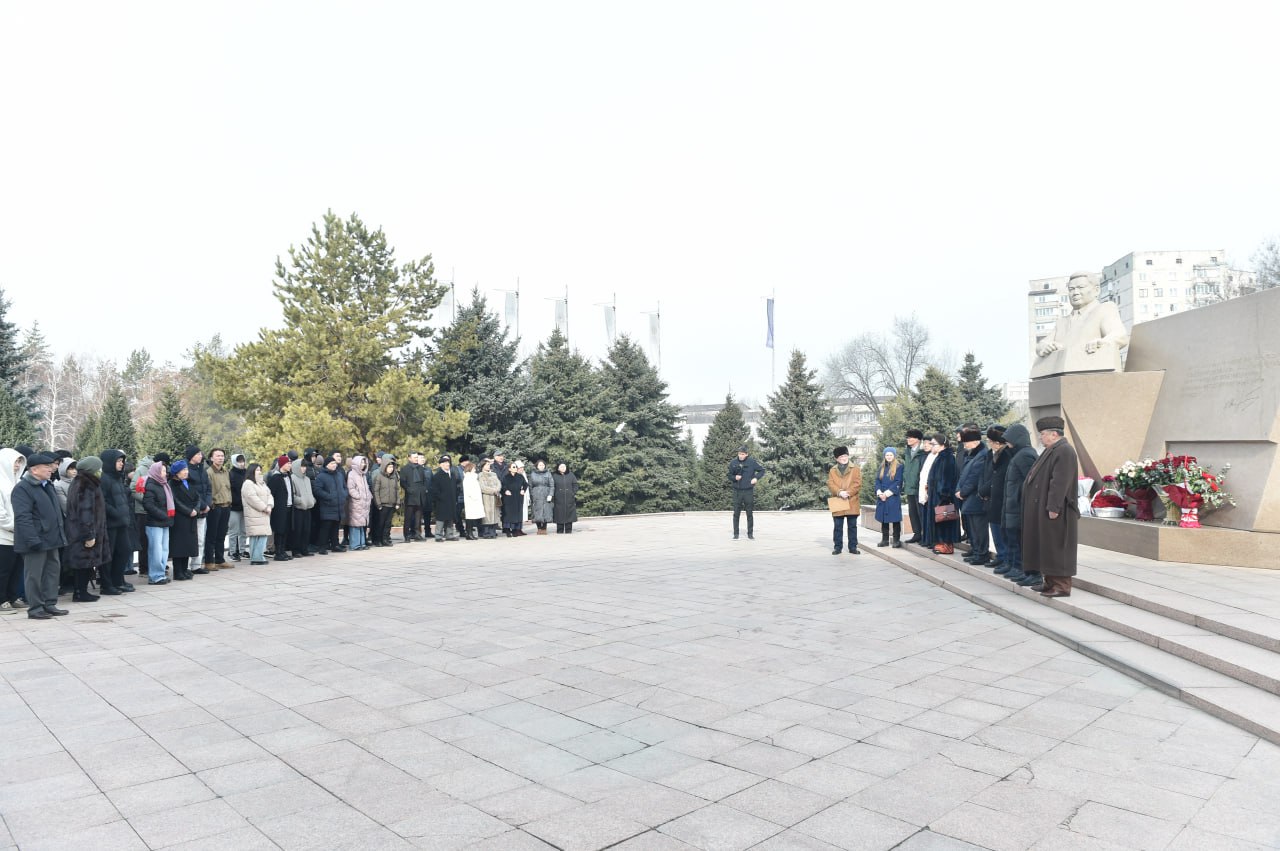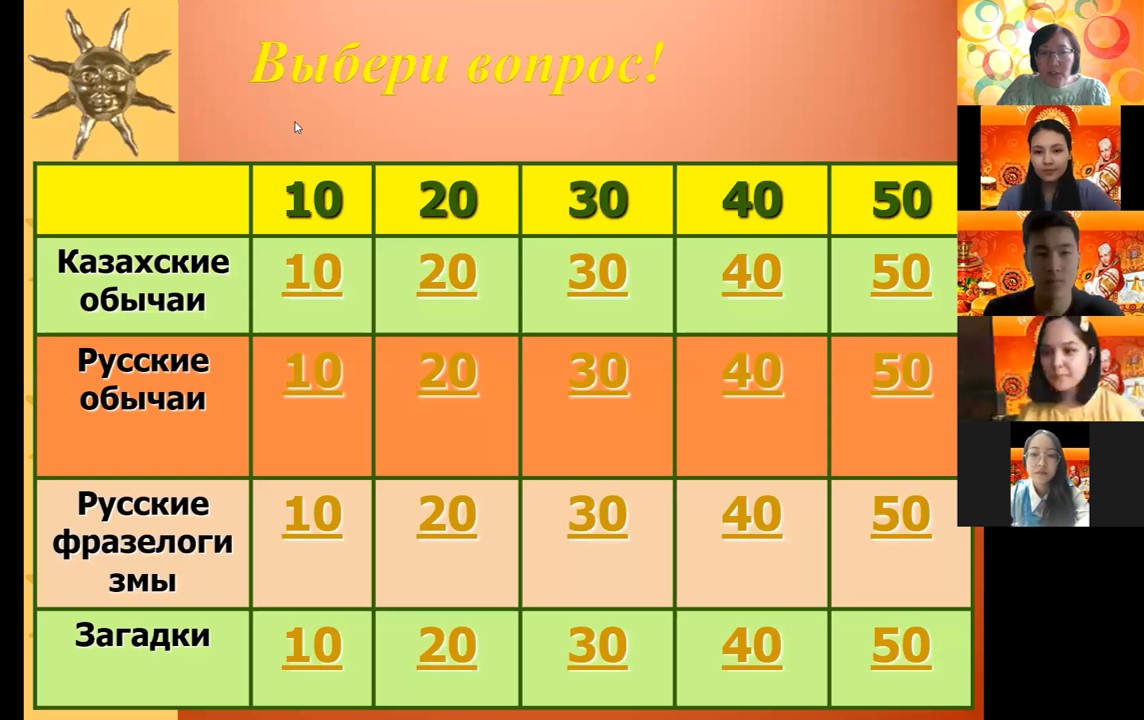
On the March 11 2021, the senior lecturer of the Department of Russian Philology and World Literature of Al-Farabi Kazakh National University, the 1st year PhD student, Ismailova Sh.A. held a quiz "Culture and traditions of the Russian and Kazakh people" with the 2nd year students of the specialty "Russian language and literature".
The main goal of the educational event was to introduce students to the customs and traditions of the Russian people and teach them tolerance to other cultures. The students prepared in advance for this event, read a lot of materials and watched a video on Maslenitsa celebration .
The ancient Slavic holiday Maslenitsa is one of the favorite folk holidays. People arrange funny folk games, festivities, and bake pancakes. It is a symbol of the sun, warm days, good harvests, healthy children.
Maslenitsa is celebrated for the whole week, every day has its own name and is celebrated in a special way. On the final day, Scarecrow of Maslenitsa is burned on bonfire. People ask each other for forgiveness, hug and kiss as a sign of reconciliation.
Nauryz holiday, which means "new day", is celebrated on the day of the vernal equinox - March 22. Nauryz is a holiday of spring and nature renewal for many people of Western and Central Asia. On this day, when people meet, they embrace each other, express their best wishes. From time immemorial it has been believed: the more generously and widely the holiday of Nauryz is celebrated, the more prosperous the coming year will pass. The main dish of Nauryz is Nauryz-kozhe, made from seven ingredients: meat, salt, fat, onion, wheat, kurt, irimshik.
The competition was held between 2 teams: "Maslenitsa" (group RYAL-202) and "Nauryz" (group RYAL-201). The teams took turns choosing questions from different categories - "Kazakh customs", "Russian customs", "Russian phraseological units", "Riddles" - and answered them. During the quiz, students were active and demonstrated good knowledge of this topic
In the creative competition, the student of gr. RLL-201 Karshybaeva Zhuldyz performed kyuy "Erke sylkym" on dombra (by Ә.Zheldibaev).
The introduction to the culture and traditions of other nation enriches our spiritual world, broadens our horizons, fosters tolerance and respect for the culture of other nations. The development of linguistic and communicative competence through the introduction to the cultural values of other ethnic group is the basis of intercultural communication and a necessary condition for the training of the teacher of Russian language and literature.
